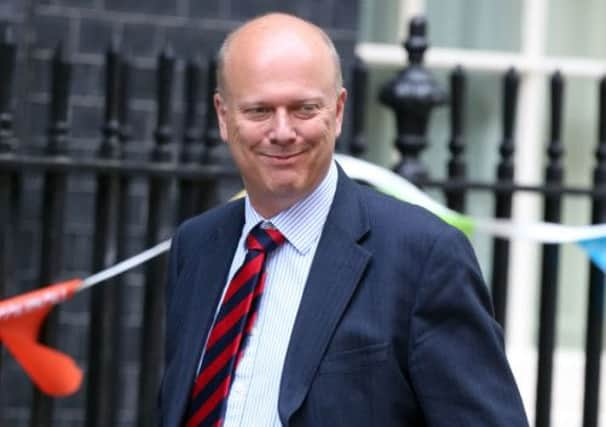Somali child rapist wins payout over deportation rights breach


Somali Mustafa Abdi, who was sentenced to eight years in jail in 1998 for rape and indecency with a child, was unlawfully detained for two-and-a-half years as he awaited deportation, the European Courts of Human Rights said.
The Strasbourg court found this to be a breach of his right to liberty and has ordered the Government to pay E1,500 (£1,277) in damages and E7,000 (£5,960) for his lawyers’ costs and expenses.
Advertisement
Hide AdAdvertisement
Hide AdAbdi, who was born in 1975 and is detained in HMP Brixton, arrived in the UK in 1995 and, although refused asylum, was granted exceptional leave to remain in the UK until February 2000.
While serving his sentence in 2002, the then home secretary, David Blunkett, ordered Abdi’s deportation and issued an authority for detention until the making of a deportation order.
In April 2004, Mr Blunkett authorised Abdi’s detention until his deportation.
From August 2004 until July 2006, however, it was not possible for the government to remove Abdi because the last carrier willing to take “enforced returns” to Somalia withdrew and Abdi refused to return voluntarily.
Advertisement
Hide AdAdvertisement
Hide AdIn September 2006, Abdi was granted permission to apply for judicial review of the decision to detain him.
After a previous legal challenge, the Court of Appeal held that the period of detention between December 2004 and June 2006 was lawful because Abdi could have returned to Somalia voluntarily and he was refused permission to appeal to the House of Lords.
He was then released in April 2007 but re-detained a year later after breaching his bail conditions.
The European Court of Human Rights found the detention was unlawful under UK law because the regular reviews required were not carried out.
Advertisement
Hide AdAdvertisement
Hide AdIn January, the Strasbourg court also awarded damages to a funfair worker who raped a young teenager after forcing her to drink alcohol.
Samuel Betteridge, 58, from Mablethorpe in Linconlnshire was jailed after he pleaded guilty to two counts of rape and one of attempted rape at Lincoln Crown Court in 2005.
A 13-month delay between the end of Betteridge’s minimum term and his first parole hearing was a breach of his right to a speedy hearing, the European Court of Human Rights found.
In separate moves yesterday, Ministers announced plans that would see prisoners’ rights to legal aid curbed, while a residency test could ensure legal aid does not go to immigrants who have recently arrived in the country.
Advertisement
Hide AdAdvertisement
Hide AdThe measures are among a number of reforms put out to consultation by Justice Secretary Chris Grayling aimed at slashing the criminal legal aid bill by £220 million.
They also include a cap which would mean defendants living in households with a disposable income of £37,500 or more would be stopped from automatically accessing legal aid.
The reforms could also pave the way for lawyers to compete for contracts.
Mr Grayling said: “We have an excellent tradition of legal aid and one of the best legal professions in the world. But we cannot close our eyes to the fact legal aid is still costing too much. It is not free money, it is paid for by hard-working taxpayers, so we must ensure we get the very best value for every penny spent.”
Advertisement
Hide AdAdvertisement
Hide AdMr Grayling also called for measures that would see criminals pay for the cost of running courts out of their future earnings.
Offenders can already be required to make payments to victims, the courts or other Government agencies through a range of orders and fines, but there is currently no power to make them pay directly towards the running cost of the court.
Last week, reforms came into effect removing large areas of law from the scope of civil legal aid. Some law firms estimate the reforms will reduce the number of people who qualify for legal aid by 75 per cent.